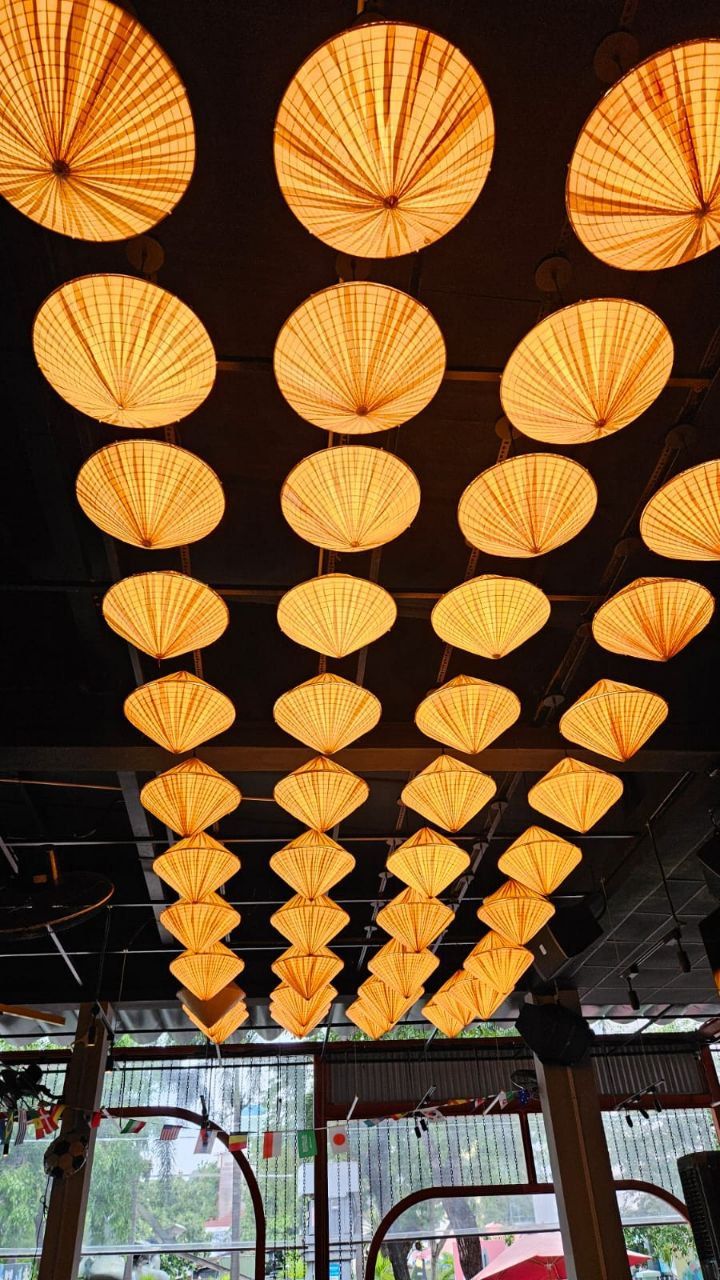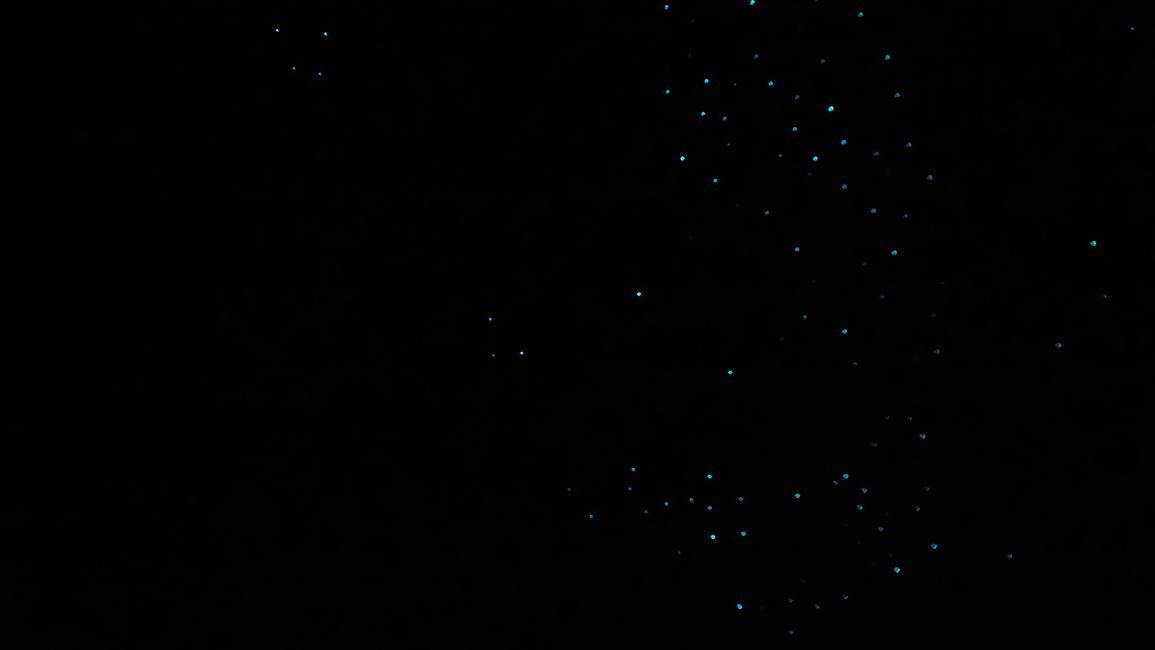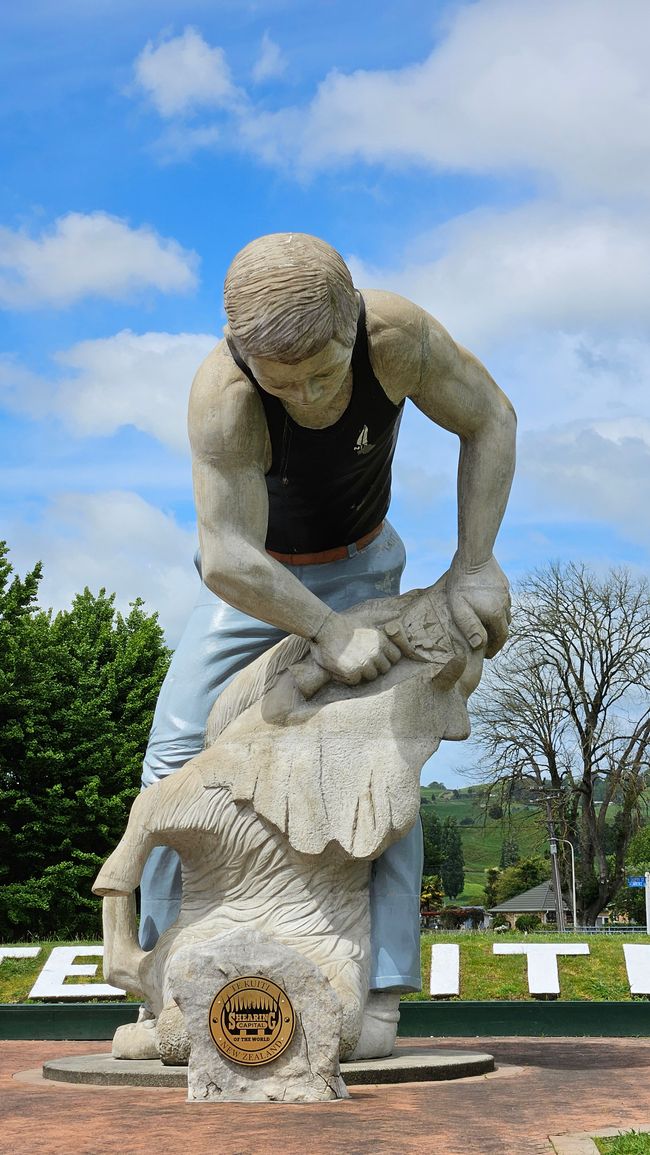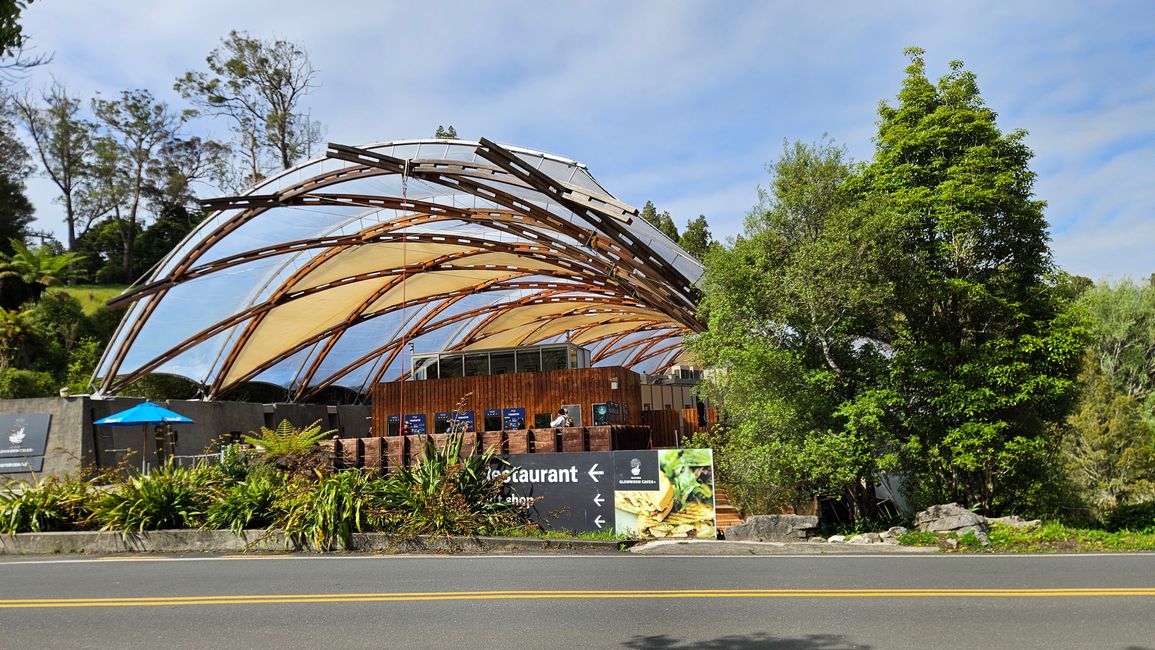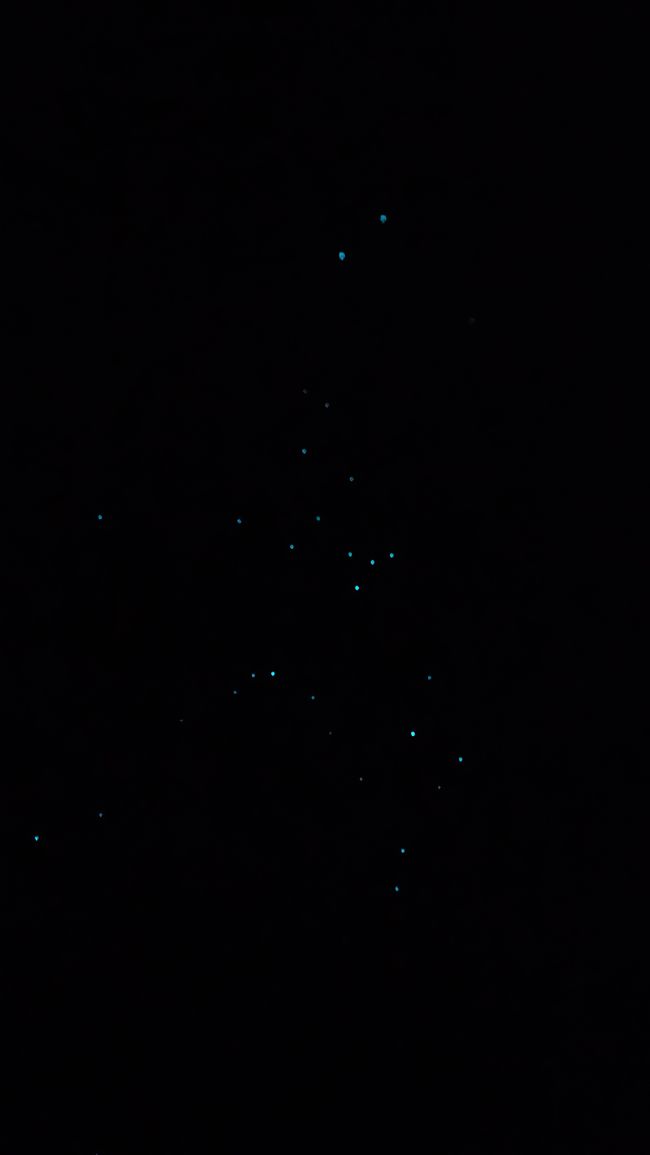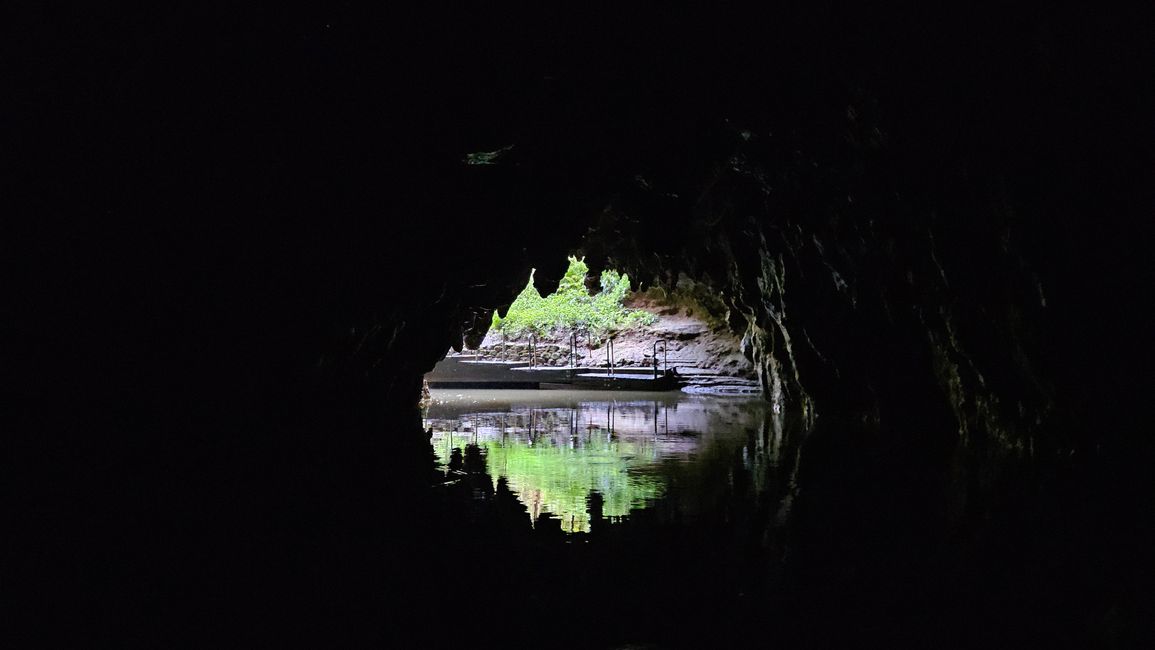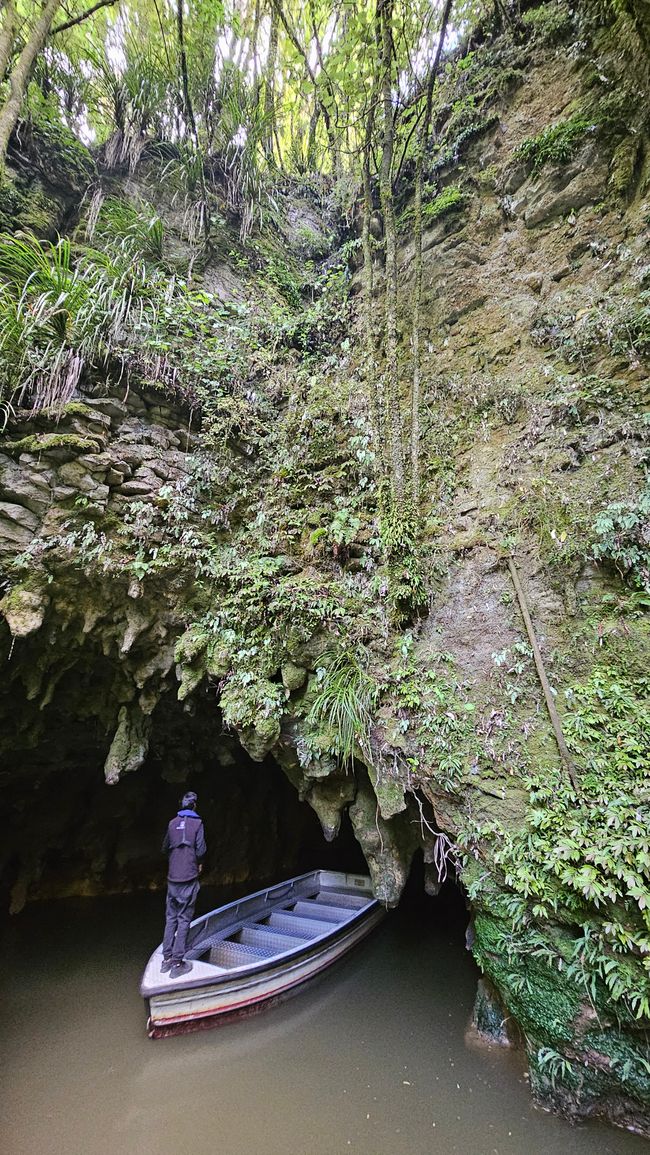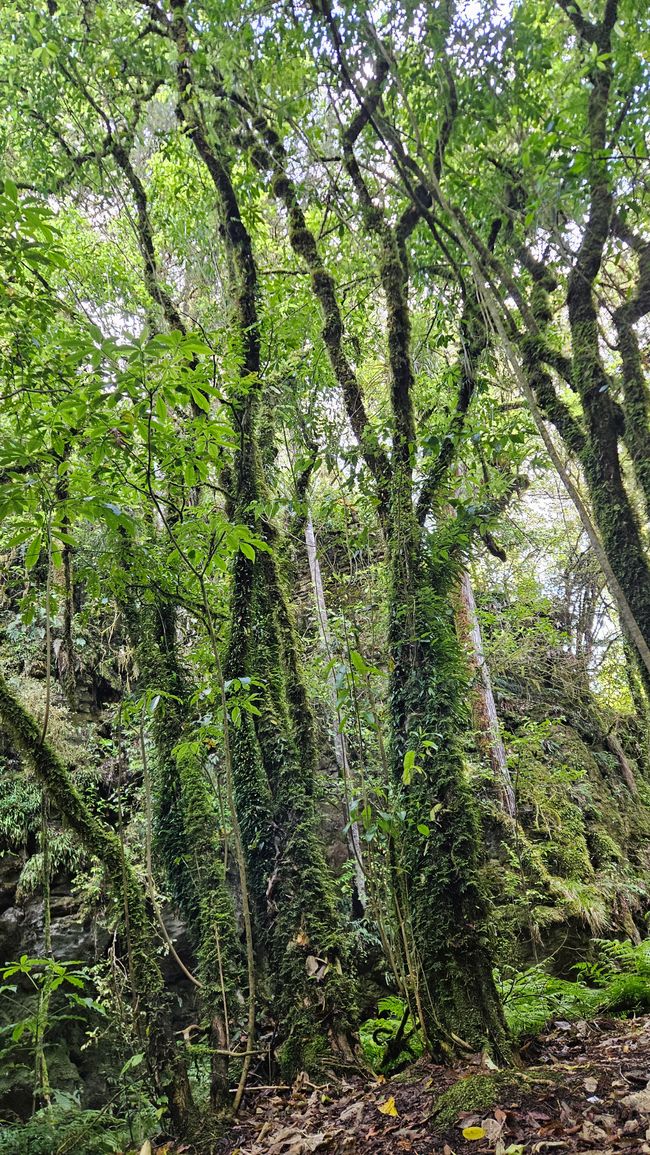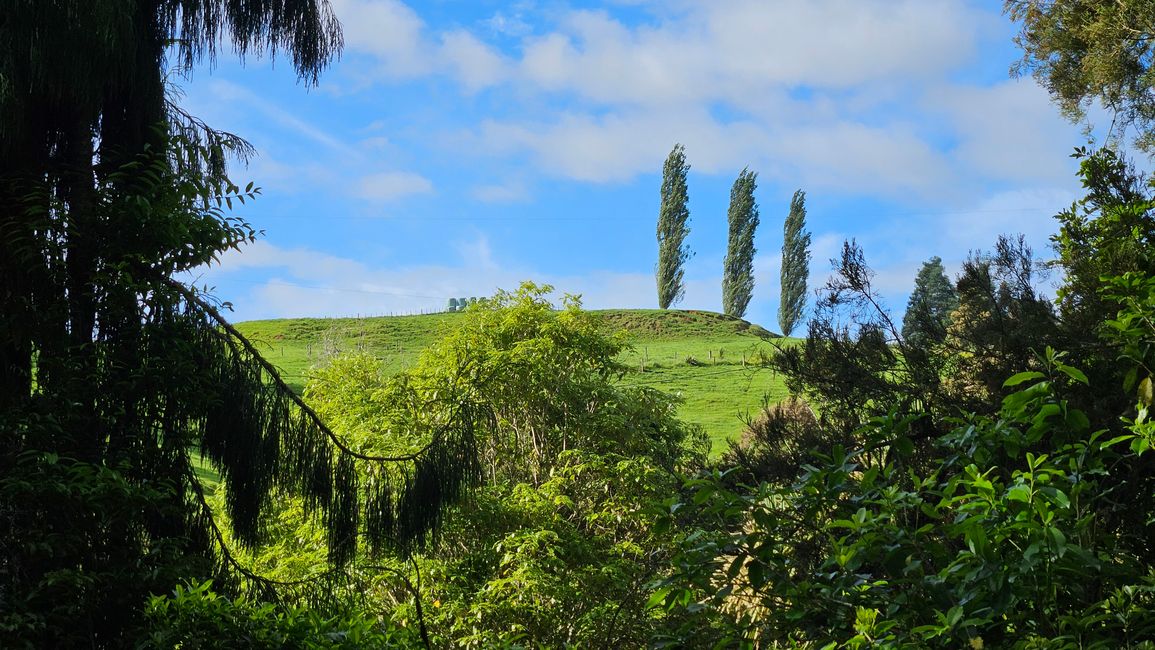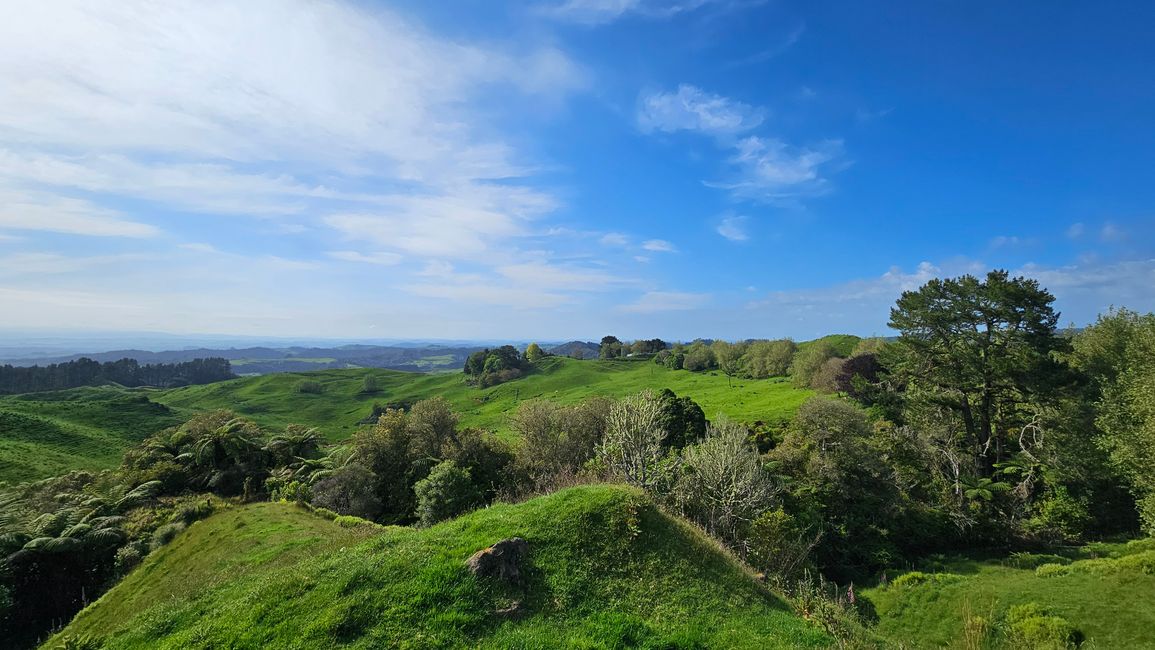Piopio - Te Kūiti - Waitomo Caves
Published: 22.11.2024
After the final glimpse of Elephant Rock, the next destination was Waitomo, where there are caves with glowworms. On the way there, I drove through the town of Piopio and briefly stopped because it looked quite charming. I quickly bought a jar of Manuka honey there, of course from bees in Piopio. I had a bit of a sore throat and wanted to make ginger tea with honey in the evening to combat it.
In Te Kūiti, I only had time for a photo of the 7m high statue of a sheep shearer. Te Kūiti is apparently the 'shearing capital of the world' and hosts the New Zealand Shearing and Wool Handling Championships every year at the end of March or beginning of April. It wasn't the right time for that, and otherwise there isn't much in the town.
In Waitomo, I got lucky again and snagged the last ticket for a tour that day. And I only had to wait 40 minutes – perfect for a quick pre-dinner. The guide was the great-great-grandson of a former Māori chief in the area and shared that the Māori had used these caves long before the 'discovery' by settlers. Out of respect for Māori traditions, photography in the cave is therefore prohibited.
First, the guide showed us various chambers of the limestone cave, one of which is called the Cathedral. This is the largest chamber of the cave and also has fantastic acoustics! We even tried it out: first, a visitor sang a short song, followed by the guide performing a traditional Māori song.
The next wow moment was the cave with the glowworms; I've never seen so many at once. It was quite bright in the cave. Then the guide turned on the light, and instead of the green glow of the glowworms, thousands of shiny threads were visible hanging from the ceiling. These are used by the glowworm larvae to catch food. The glowing attracts prey (flies, mosquitoes, moths, small snails, millipedes, etc.), which then gets stuck on the threads. The hungrier a glowworm is, the more brightly it glows.
By the way, these glowworms are 'Glowworms' or 'Arachnocampa,' not 'Fireflies.' They are endemic to New Zealand and Australia, and unlike fireflies, only the larvae glow.
The last part of the tour was a boat ride to the exit of the cave, during which the cave was lit only by glowworms. Just before we left the cave, the guide finally allowed us to take pictures. So anyone who thought I took photos illegally and then used them for my blog was mistaken!
Answer

Travel reports New Zealand
